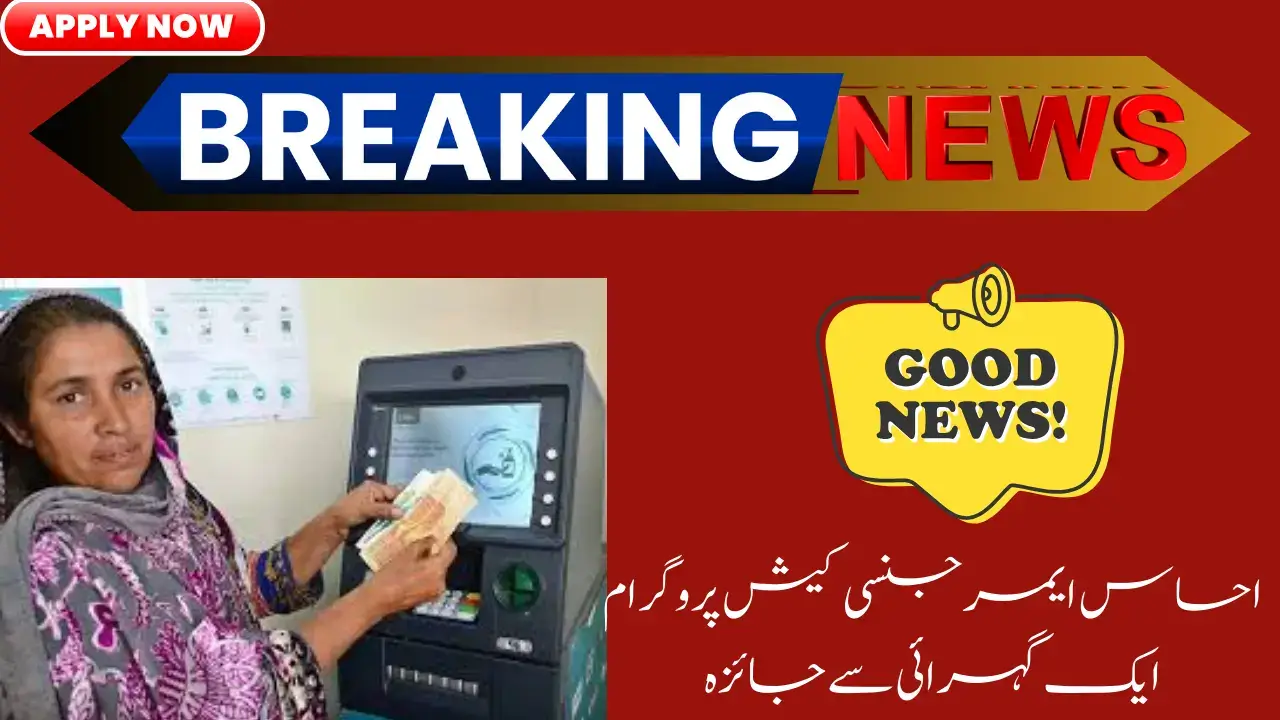The Ehsaas Emergency Cash Program (EECP) is a significant initiative by the Government of Pakistan, established in 2020 to mitigate the financial difficulties caused by the COVID-19 pandemic. The program provides financial assistance to needy families nationwide, particularly those most impacted by the economic consequences of the pandemic.
Objectives of the Program
Alleviating Poverty
The primary goal of the EECP is to reduce poverty by providing immediate financial relief to vulnerable families.
Economic Stimulation
By injecting cash into the local market, the program aims to stimulate the economy.
Protecting Livelihoods
The EECP is designed to protect the livelihoods of daily wage earners and informal sector workers who were severely affected by pandemic lockdowns.
Empowering Women
The program ensures that at least 50% of the beneficiaries are women, promoting gender empowerment.
Eligibility Criteria
Registration with BISP
Beneficiaries must be registered with the Benazir Income Support Program (BISP), a government-run social safety net initiative.
Income Threshold
Families must have a monthly income below a certain threshold, as determined by BISP.
Exclusion of Government Employees
Government employees and income tax filers are not eligible for the program.
Registration Process
8171 SMS Service
Families can initiate the registration process by sending their CNIC number to 8171.
BISP Website
Online registration is available through the BISP website, requiring the CNIC number and other necessary information.
Ehsaas Centers
Families can also register in person at the nearest Ehsaas center.
Payment Mechanism
Debit Cards
Eligible families receive debit cards to withdraw cash from ATMs or make purchases at designated stores.
Mobile Wallets
Some families receive payments through mobile wallets, facilitating cashless transactions.
Cash Payment Centers
In certain areas, cash assistance is provided through designated payment centers.
Impact of the Program
The EECP has significantly impacted millions of families across Pakistan. The government reports that the program has provided financial assistance to over 15 million families, injecting over Rs. 200 billion into the economy. The program has been lauded for its effectiveness in reducing poverty, stimulating economic activity, and safeguarding the livelihoods of vulnerable populations.
Challenges and Criticisms
Targeting Issues
Concerns have been raised about the program’s effectiveness in targeting the most deserving families, with reports of some ineligible families receiving benefits.
Transparency
There have been calls for greater transparency in the selection and registration processes.
Fraud and Corruption
Instances of fraud and corruption have been reported, with some individuals misusing funds or registering ineligible families.
The Future of the EECP
Improved Targeting
The government is working to enhance targeting mechanisms to ensure the program reaches the most deserving families.
Increased Transparency
Steps are being taken to increase transparency, including making more information available to the public.
Combating Fraud
The government is strengthening anti-fraud measures to prevent misuse of program funds.
Conclusion
The Ehsaas Emergency Cash Program is a crucial social safety net initiative that has provided essential support to millions of families in Pakistan. While the program has faced some challenges, it has achieved significant success in reducing poverty, stimulating the economy, and protecting livelihoods. Addressing these challenges and building on its successes will be vital for the program’s continued positive impact on vulnerable families in Pakistan.
